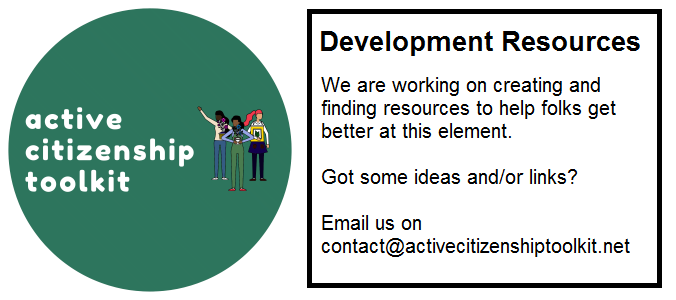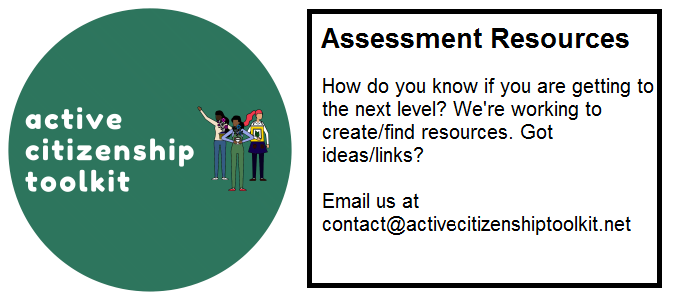Element Descriptor
We’re frequently told that mainstream media is dead, or that we’re all journalists now. Whilst the landscape has changed significantly over the past fifteen years, the mainstream media still shapes debates. A story in the mainstream press can make a different kind of intervention, reach audiences who do not engage with (e.g.) social media and put pressure on politicians.
Level descriptors
| Novice | Practitioner | Expert | Ninja |
|---|---|---|---|
| Maps the media landscape and builds good relationships with a number of journalists, who respond to messages and are sometimes willing to meet in person | Regularly maps the media landscape and builds good relationships with a number of journalists, who respond to messages and are willing to meet in person. | Understands not just how journalists can help their organisation, but also how they can in turn help these journalists do their job. Regularly meet, share intelligence and contacts as far as possible. Invited to offer quotes in print media and to give interviews for broadcast media. | You put Alistair Campbell to shame. There’s no longer any need to schmooze – you are the one who is wined and dined. Plus why stop at regional? National, right / left, TV, radio… all want to get to you first. |
Element Overview Essay
This is a draft. If something doesn’t make sense, or you see typos, or if you have further ideas, please email us on contact@activecitizenshiptoolkit.net
The reason schmoozing journalists is badly done is that most of us don’t know journalists or really understand how they work and how much time pressure they are under. Because we’ve seen movies with Michael Keaton or Robert Redford or whoever, as part of investigative journalism, where they’ve a long time to slowly build a case and the set of stories around the president and Watergate or child sex abuse, or whatever. The grim reality is that most journalists simply do not have that kind of time or those resources. They are reduced often to getting a press release, copy pasting and rearranging it, finding one or two people who will give a react quote, and bish, hitting publish, to keep their editor happy, because it is an intensely dog eat dog world, and someone else is gonna cut and paste that press release a little bit quicker. And then you look like Johnny come lately.
Also people don’t understand that journalists have to be careful of not offending their major sources who are often government agencies or industry. I mean, I’m doing a caricature here, but there’s some truth to it.
The consequence of not understanding how to schmooze journalists or the pressures that journalists are under is that …. you do it badly. And if you do that, then your press releases don’t get picked up, your stories don’t appear in the paper. This can demoralise you can deprive you of access to other resources, people who’ve seen that story. And it also means that there’s less public pressure brought to bear on the body, whether it’s local government or Transport Authority or business or an industry or whatever, to actually do anything.
Media exposure is after all, the bread and butter of active citizenship, it shouldn’t be. But it is.
So what is to be done? Make yourself useful to journalists. Make sure that you’re sending them useful little bits and pieces of information and background not overwhelming them not every day. But when there is something trying Get an occasional phone call with them just on background. It doesn’t have to be in the day before you release a major report.
Thank them when they cover a story well. If they’ve covered a story badly, maybe politely explain to them that there’s additional perspective x or additional perspective Zed and that if in future, they want a sound bite, then you can provide it very quickly.
Development Resources

Assessment Resources

